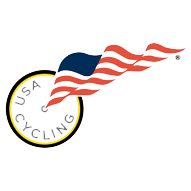Anyone can have a great ride or a great race on a beautiful sunny day when they are feeling strong, confident, and full of energy! When participating in endurance sports you will have times when your body can’t keep up with your demands and you will need strong mental skills to keep you going. Preparing for the times when cycling will be challenging helps to maintain a consistent performance despite any obstacles thrown your way. Remember, the challenge of cycling is part of the reward!
Focus
Your thoughts impact your cycling performance. Wherever your focus is, that is where you are directing your energy. Negative thoughts can move in a downward spiral, taking you and your performance with them. Keeping your thoughts positive and constructive is key to maintaining focus, confidence, and having a successful performance. Here are some tips for keeping your thoughts working for you:
In Control / Out of Control
Oftentimes when you find yourself in that downward spiral, you’ll notice that you are thinking about things that are out of your control. Remember that the weather, road conditions, and flat tires, are all out of your control. Focusing on them only wastes energy that could be better used towards pedaling and moving forward. You can’t control those things, but you can control your reaction to them.
Exercise: Think about a situation in cycling when you are likely to have negative thoughts and feelings. Grab a piece of paper and write down the negative thoughts you are likely to say to yourself. How do you feel in this situation? Now write down how you would like to feel and react in this situation and what you need to say to yourself in order to make that happen. Example – Situation: Riding in the rain. Negative Thoughts: “I hate riding in the rain..”, “I don’t want to be here.” Feeling: Frustrated, angry, annoyed. I would rather feel: Confident, strong. New thoughts: “Riding in the rain makes me stronger!”
Cue Word
Cue words and phrases are great tools to have when you find that you need to regain your focus or find the energy to make that final push up the pass. Cues like “Focus”, “Smooth”, and “Power!” can help your mind influence your performance. Some athletes choose an image of a powerful animal chasing its prey, or the sun radiating energy through their body into their legs. Choose a word, phrase, or image that is meaningful and powerful for you. When you are faced with a challenge, use that word or image to help you focus on your performance in a positive way.
Relax
The key to success in endurance sports is to stay relaxed. If you are feeling tension or stress 50 miles into your 120 mile ride, you are burning up valuable fuel that you’re going to need to push you through to the end. Practice the tips below when you are feeling tense. Practicing them in everyday life will make you better at using them on the bike.
Breathe
Your strongest ally in reducing physical tension in the body is to remember to breathe. Physical tension in the body affects breathing, balance, focus, and energy level, elements that are essential for optimal cycling performance. Taking deep, full breaths circulates oxygen through the body to feed your muscles and fight early muscle fatigue.
Body Scan
Start by relaxing your face muscles. Just relaxing the muscles in your face can cause other muscles to relax as well. Scan your body from head and shoulders to feet; relax any muscles that are tense in order to save that energy for the next uphill push, or your next turn at the front of the pace line.
Train for Adversity
In Lance Armstrong’s book, Every Second Counts, he describes the morning of the first mountain stage during the 2000 Tour de France. “On the morning of the stage, I awoke to a freezing rain. I hopped out of bed and threw back the curtains, and I burst out laughing. ‘Perfect,’ [he] said. It was suffering weather, the kind that could defeat a lot of guys as soon as they got up in the morning.” While his competitors groaned and dreaded the upcoming day, Lance celebrated because he had trained on this mountain pass, under these exact conditions. He had an edge over his competitors before the stage even began.
When you train for adversity, not only do you prepare physically, but you mentally prepare for the conditions as well. Knowing how you react under stressful and challenging situations will help you prepare for how to deal with them in training and competition. Feeling prepared is the #1 key to feeling confident. Lance was confident that he would outperform the competition because he felt prepared. The other thing Lance did was to change his perception of riding in the rain. Instead of dreading the rain and doubting his ability to ride through it, he welcomed the challenge. Try to see adversity as an opportunity to become stronger and meet the challenge versus viewing it as a negative experience.
I have always struggled to achieve excellence. One thing that cycling has taught me is that if you can achieve something without a struggle, it’s not going to be satisfying.Greg LeMond
Experiencing ups and downs in cycling is inherent within the sport, but how you deal with them is up to you. Developing strong mental skills helps you to perform consistently through adversity and challenge.














